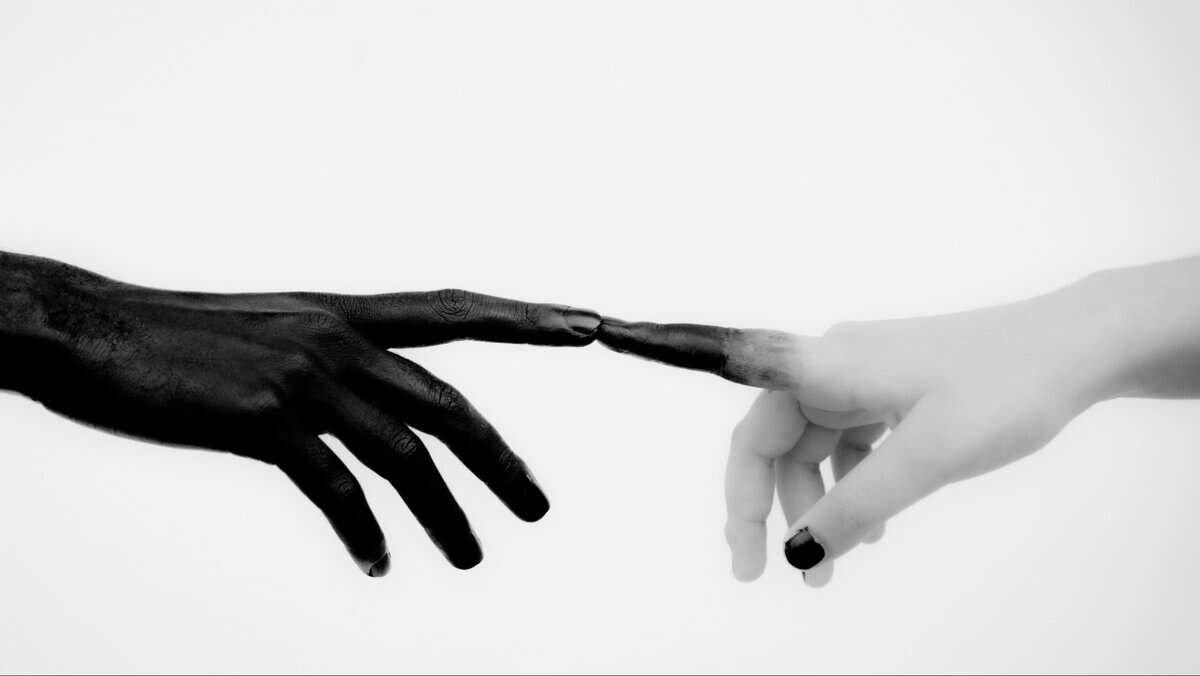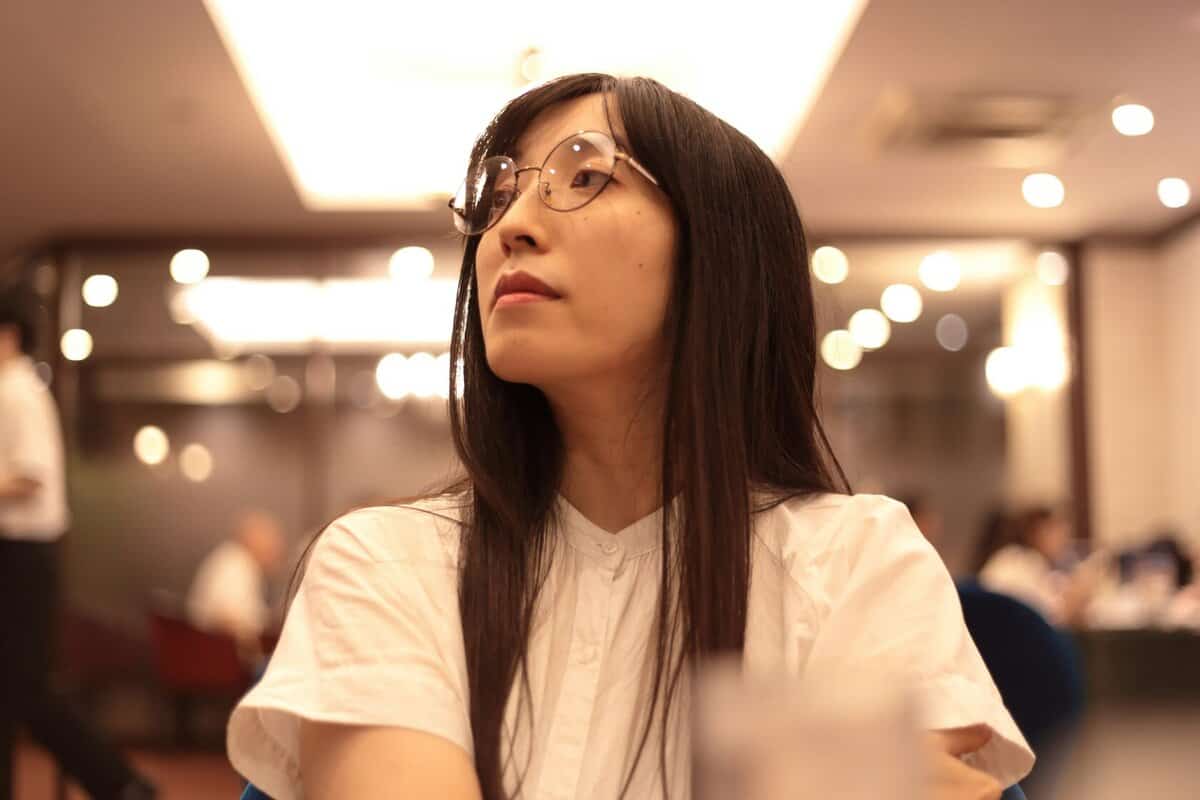Does it feel like you lose a bit of yourself in every relationship?
You walk on eggshells and try to be everything you think they want, and it absolutely drains you.
This isn’t always about the other person; it might be a you problem. One sneaky culprit is enmeshment.
You’ve probably heard the word thrown around, but what does it really mean?
Let’s explore what it is, why it happens, and how you can start fixing it today!
What Is Enmeshment?
Enmeshment means that boundaries between you and someone you’re close with – like your parents or partners – get blurred.
Instead of healthy closeness, your actual identity gets tangled up with theirs.
Think of it as a web that leads you to lose yourself, and can no longer tell where your identity ends and theirs begins.
This kind of dynamic isn’t truly healthy or supportive.
The problem with boundaries becoming all fuzzy is that you might struggle to stand up for yourself or even know what you truly want.
Essentially, enmeshment leads you to become just a reflection of the other person.
Why Some People Get Caught Up in It
Only some people experience enmeshment, so what actually causes it?
It can often stem from childhood experiences.
If you grew up in a home where boundaries weren’t clear, or if your needs were ignored, you might have learned to merge your identity with others as a survival tactic.
Sometimes, enmeshment is a way to feel love or accepted in unstable environments.
Neglecte anche overbearing caregivers, can push someone into this pattern.
It’s a coping mechanism that sticks with you as long as you let it.
Over time, it becomes normal, and you might even start seeking out relationships that mirror this unhealthy closeness, unaware that it’s actually holding you back.
Where Does It Come From?
Enmeshment can develop from caregivers who are overly involved or don’t allow their children to develop independence.
Kids who grow up like that often end up learning that their worth depends on pleasing others or staying close.
That kind of emotional dependency becomes ingrained in them, and they take it into all of their future relationships.
Sometimes, enmeshment can also be a response to chaos. If your environment was unpredictable, you might be using it as a tactic to feel safe.
It’s an unhealthy pattern, but it can feel deeply familiar, so it can be very difficult to get rid of.
How It Messes Up Your Relationships
When enmeshment is part of your relationship, this can get very complicated.
Instead of two individuals loving and supporting each other, you might become codipendente or overly involved.
You could lose sight of your own needs and the fact that there is life outside of that one person.
Genuine intimacy is almost impossible to build in such relationships because you’re afraid to be yourself or ever say no.
Over time, these relationships can start to feel suffocating and unstable for both partners. Resentment and burnout are sure to follow.
Why Enmeshment Leads You to Toxic People
Enmeshment and toxic relationships often go hand in hand.
When you’re used to losing yourself in someone else, you might be drawn to individuals who enable that sort of behavior – people who thrive on control and manipulation.
And because your boundaries are weak to begin with, it’s easier to exploit your need for closeness.
You might end up staying in unhealthy situations because you’re afraid of being alone.
Add to that the constant need for external approval, and you’ve got yourself a messed up cycle that’s very hard to end.
Building a Strong Identity
Breaking free from enmeshment starts with two main steps: recognizing that you have this problem and building your own identity.
Meditate on what you actually like, what you really want, and what boundaries are non-negotiable for you; it helps to write this down.
It will likely take you a long time to stop feeling guilty about saying no to someone, but the more you do, the stronger you’ll feel.
Il vostro unique hobbies and interests also help create a strong sense of identity.
Resist the urge to abandon them and like whatever your partner likes when you enter a new relationship.
Therapy might be the best choice, since many people have been struggling with enmeshment for years. It might be hard to get rid of this pattern on your own.
Setting Boundaries Without Guilt
Setting boundaries is not as hard as it seems. You already have them – just not in certain relationships.
For instance, you might function as an individual at work or with friends, but in romantic relationships, you allow your identity and needs to melt with your partner’s.
So, start setting them in all of your connections. You’ll feel guilty at first, but that’s completely normal.
Practice saying things like, “I need some space,” or “I don’t want you to do this again.”
And keep in mind that your boundaries won’t push the right people away; only the ones who are bad for your mental health.
If you can stay coerente, the guilt will lessen, and you’ll start seeing boundaries as a way to respect yourself and others.
Cultivating Healthy Independence
Healthy independence doesn’t have to mean cutting people off. It just means feeling secure in yourself.
Your happiness shouldn’t be dependent on someone else, and even in committed relationships, partners must be able to function separately and do their own thing from time to time.
Avere un support network is important, but only if those people will honor your boundaries.
Try to spend some more time alone, and prioritize your self-care.
Developing independence after years or decades of enmeshment can’t come quickly; you’ll have to prendetevela con calma.
You must rewire your mind to trust yourself and to understand that being by yourself isn’t necessarily scary; it can be empowering.
Embracing Your True Self
You’ll find yourself free of enmeshment when you embrace your authentic self.
For too long, you’ve hidden parts of yourself that you thought others won’t accept, and it’s time to ask yourself, “So what if they won’t?”
You are who you are, and hopefully, you’ll reach the point where you can comfortably show the door to anyone who has a problem with that.
First things first, you need to learn to value yourself independently di altri.
Seek support when needed, from friends, therapy, or online spaces.
By embracing yourself completely, you’ll be happier on your own, and you’ll be able to attract healthier, kinder partner.
A little Aquarius, devoted to writing and embroidery. Through my writing, I hope to empower readers to align with their true selves and navigate life’s mysteries with confidence.










